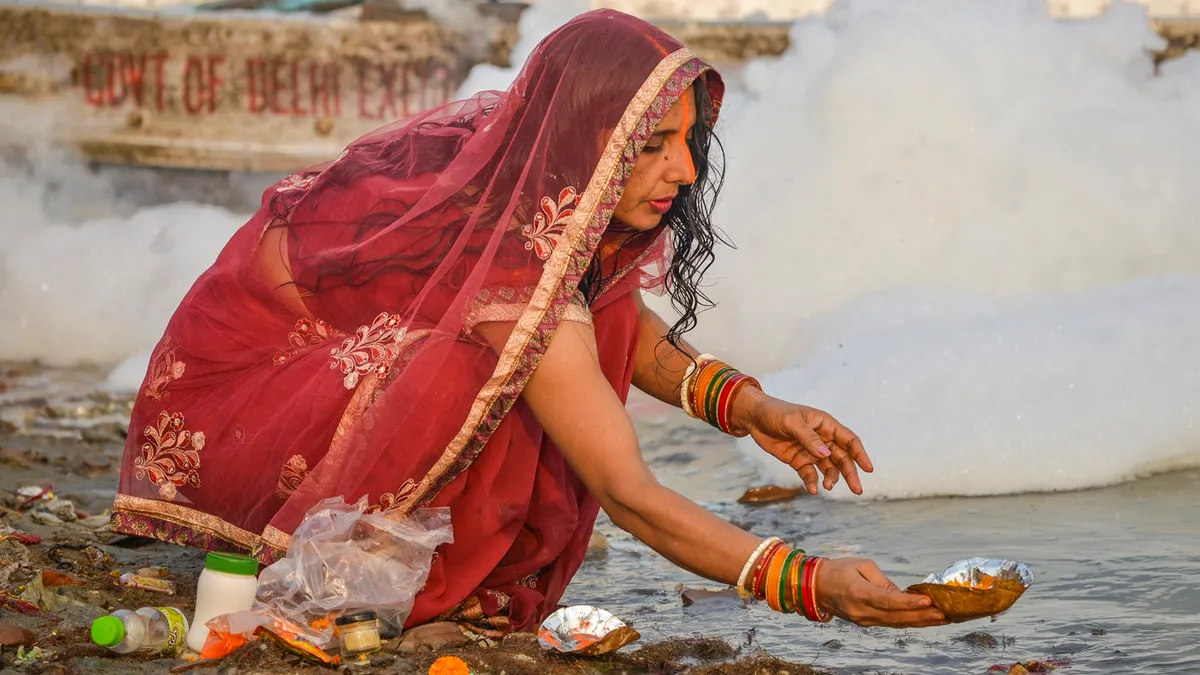The Delhi High Court, addressing a petition on Wednesday, reaffirmed the critical state of the Yamuna river and declined a plea to permit Chhath Puja celebrations along its banks. Acknowledging the river’s severe pollution, the court underscored the health risks for devotees and pointed to extensive arrangements made by the Delhi government to accommodate worshippers across 1,000 designated ghats throughout the city. “The Yamuna’s pollution levels make it unsuitable for any immersion rituals,” observed the Bench, citing the river’s toxicity as a direct threat to public health.
The court’s decision followed a petition by Purvanchal Nav Nirman Sansthan, which sought an exemption from the Delhi Disaster Management Authority’s (DDMA) 2021 ban on riverbank celebrations during Chhath Puja. This four-day festival, which began Tuesday, is significant for Purvanchalis from Bihar, Jharkhand, and Uttar Pradesh. Rituals include standing in water, fasting, and offering prayers to the Sun God, typically along riversides. Despite the petitioner’s appeal, the court emphasised that Yamuna’s current condition could pose significant harm to participants.
Delhi’s government counsel confirmed that the river remains extremely polluted and pointed out that the standing order by the DDMA reflects this reality. To ensure safer celebrations, the government has created 1,000 public locations throughout Delhi with the necessary infrastructure for devotees to perform rituals without exposure to hazardous waters. The court lauded these efforts, reinforcing that public safety could not be compromised given the pollution crisis facing the Yamuna.
The Bench expressed concerns over the extensive, ongoing pollution challenges plaguing the Yamuna. Judicial observations highlighted that unauthorised colonies and unchecked industrial and residential discharges into the river have led to an “all-time high” in pollution levels. The court, while recognising the intent of the petitioners, acknowledged that reversing the damage to the river is a complex endeavour that cannot be achieved overnight. It also noted the lack of a united approach among various stakeholders to curb pollution, as some factions continue to support unregulated encroachments along the riverbanks.
Sustainable solutions for the Yamuna have been an ongoing struggle. While regulatory bodies are making efforts to limit pollution and unauthorised discharges, the river remains a challenging project, demanding more robust measures and stricter oversight to address decades of neglect. The Delhi High Court’s stance on prohibiting rituals at the Yamuna this Chhath Puja echoes an urgent call for collective action to revive the river, not just for cultural practices, but as a lifeline for sustainable urban living.


